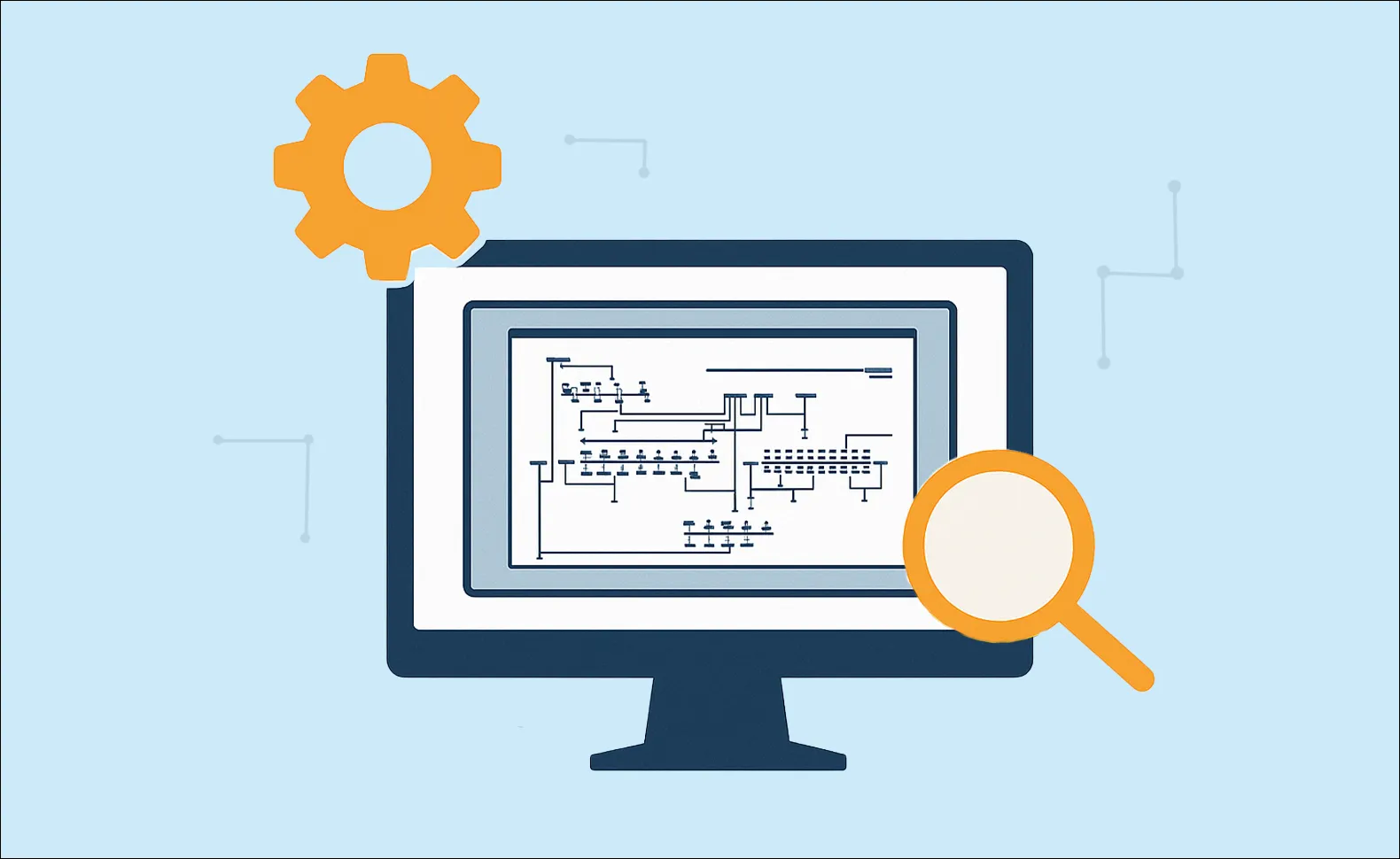The most important thing in brief:

What is network planning?
Network planning describes the structured Process for designing, modeling, and documenting network infrastructures. The goal is to create a secure, stable and scalable network to design that meets the technical and organizational requirements of a company.
Regardless of whether it is a new company network, the modernization of existing IT structures or the integration of several locations — a well-thought-out strategic network planning is essential. Without them, there is a risk of expensive incorrect planning, safety risks or inefficient operating processes.
Objectives of network planning
The goals of network planning are diverse and go far beyond simply establishing a functioning connection:
- Operational safety: A stable network minimizes failures and ensures continuous availability of all systems and services.
- Performance & efficiency: Data should be transferred quickly and reliably — without bottlenecks or unnecessary detours.
- surety: Sophisticated access concepts and segmentations protect sensitive information and corporate data.
- scalability: Networks must be able to grow with the company — new departments, locations or cloud components should be easy to integrate.
- cost control: Optimized network structures avoid unnecessary investments and reduce operating costs in the long term.
In practice, this means that good planning helps to avoid errors at an early stage, to minimize subsequent modifications and to keep operating costs low.
How do I plan a network?
The planning process consists of several steps:
- Needs analysis & goal definition
Which devices, locations, services, and users need to be connected? - Define network structure
Topologies (such as star, ring, or tree structure), IP addressing, subnetting, VLANs. - Select components
Routers, switches, firewalls, access points, servers — everything must be compatible and scalable. - Integrate safety concept
Access controls, encryption, network segmentation — this is where professional network planning comes into play. - Documentation & maintenance
Clean documentation is the basis for error analysis, enhancements and audits.
A Network planning is not a one-off project, but a dynamic process — especially in fast-growing companies.
Network planning: principles & best practices
The following principles apply to professional network planning:
- Future security: The infrastructure should be easy to expand.
- Redundancy & resiliency: There should be duplicate critical connections.
- Transparency & documentation: Without current network plans, there is no overview.
- automation: Automation is crucial for recurring tasks, such as inventory.
Practical tip: Use a specialized Network planning programto reduce complexity and avoid manual errors.
Network planning example from practice
An IT service provider serves several medium-sized customers with different network topologies. A company is planning to expand its location with 30 new jobs.
Instead of manually recording the network, the service provider uses Docusnap. The software automatically reads out the existing networks, visualizes all components and shows potential bottlenecks. Based on this data, the Network planning be done efficiently and in a structured manner.
With Docusnap, the entire network infrastructure, including active devices, services and dependencies, can be transparently mapped. → Gather network information
In addition, a clear network plan can be created in just a few steps.
Tip: Discover our Solutions for IT service providers.
Strategic network planning with Docusnap — efficiency for IT departments & service providers
Docusnap is not just a tool for network documentation, but also a powerful Network planning software. Key benefits:
- Automated inventory
Agentless recording of network infrastructure including IP addresses, ports, device information, approvals, and more. - Visual network plans
Create plans, topologies and diagrams at the push of a button.
→ Create a network plan with Docusnap - Planning basis for expansions
Realistic scenarios can be simulated using current data. - Ideal for IT service providers
Document customer networks, track changes and automatically generate reports — all from a single source. - Integration into existing IT processes
Whether for audits, ISO certifications or change management — Docusnap always provides up-to-date and structured information.
Conclusion: With the right network planner for an optimal IT infrastructure
Network planning is more than just a technical task — it is a strategic element for corporate success. IT departments and service providers can only maintain an overview and make well-founded decisions with a clear plan, structured documentation and the appropriate tool.
A professional Network planning tool How Docusnap helps you to make the entire process efficient and error-free — from initial analysis to sustainable documentation.
Learn more about Network planning with Docusnap:
Go to the network documentation product page
FAQs
The next steps:
Would you like to take your network planning to a new level - efficiently, automatically and future-proof? With Docusnap, you create network plans based on real infrastructure data - up-to-date, clear and audit-proof. Whether when introducing new locations, in day-to-day business or during audits: a precisely documented network structure is the basis for reliable decisions.
Try Docusnap for free!


